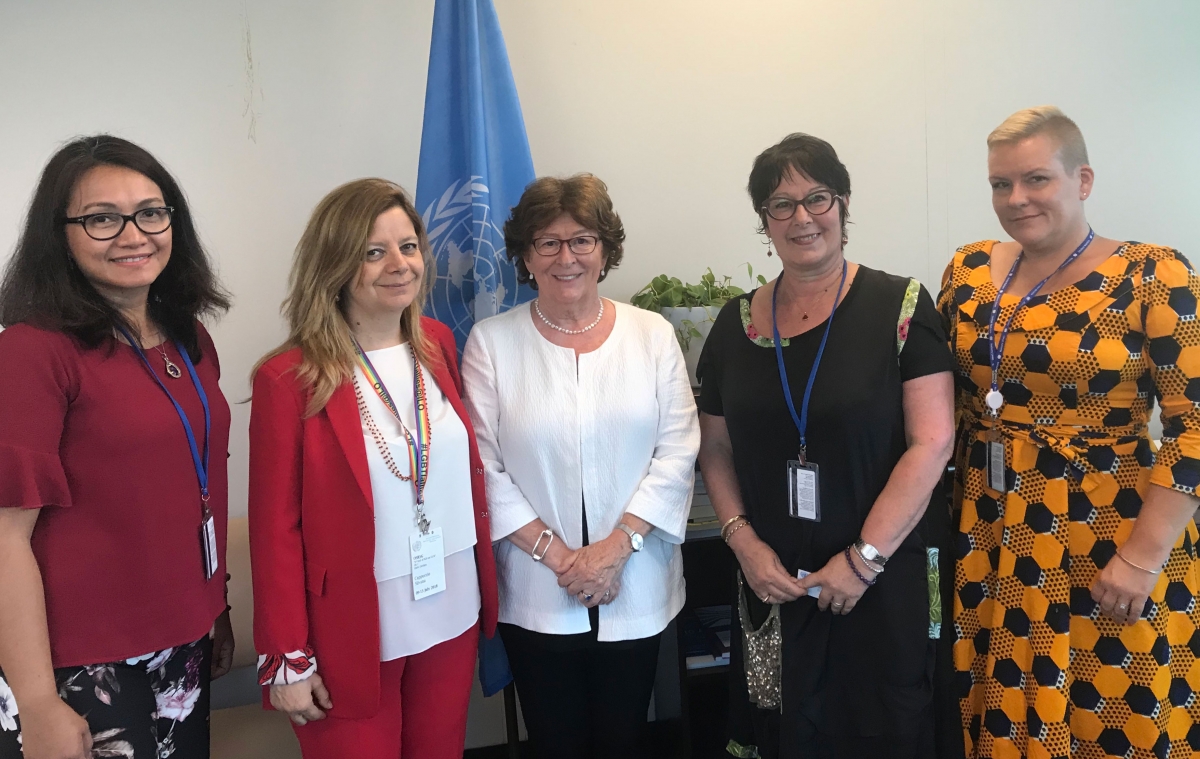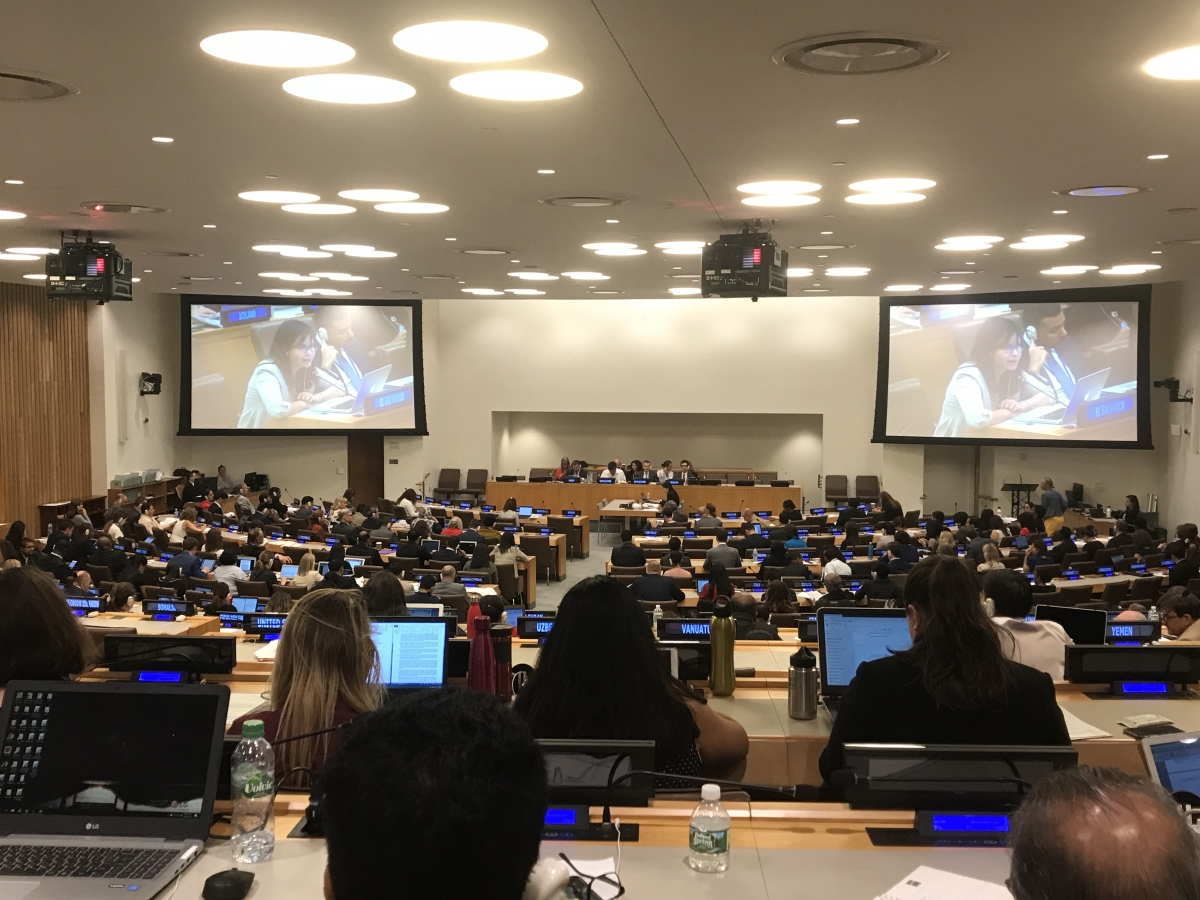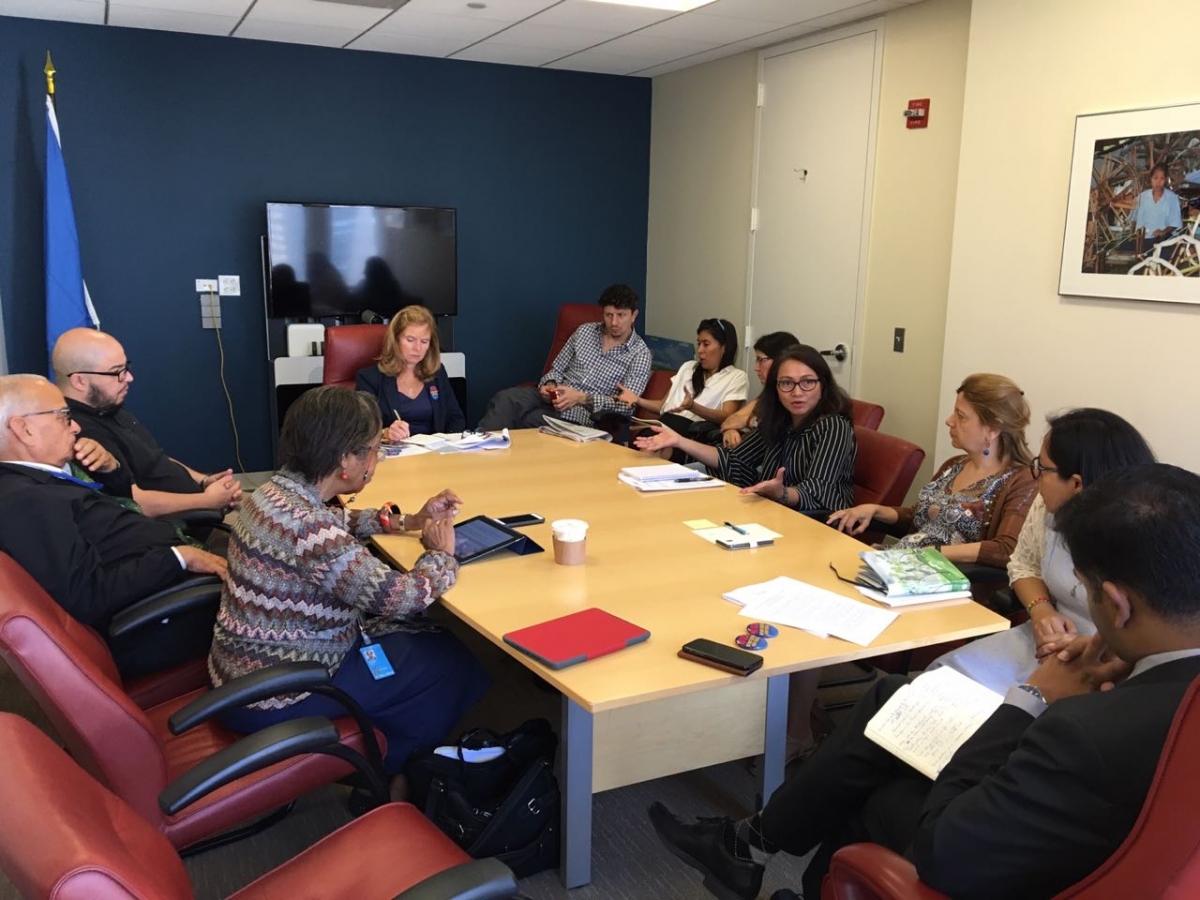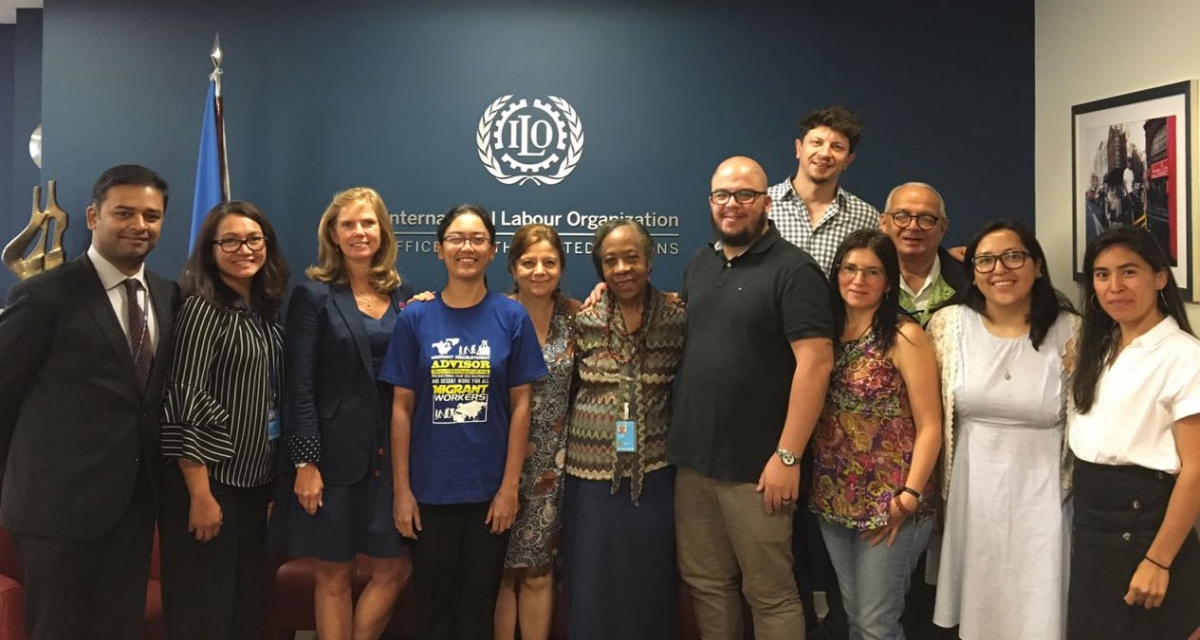PSI General Secretary meets with Louise Arbour, the Special Representative of the UN Secretary General on International Migration

Pavanelli stresses how a Global Compact on Migration is not possible without guarantees to the full protection of the human rights of all migrants, regardless of status, their access to decent work and to quality public services.
In the light of failed government responses to migration and asylum, fuelled by racism and the enactment of anti-migrant policies violating migrants’ human rights and tearing families apart, the success of the Global Compact hinges on its ability to remain firmly rooted on the rights-based, gender-responsive and child-focused normative framework, while elaborating actionable commitments for international cooperation, in line with the 2030 Sustainable Development Goals.
Ms. Arbour heads the UN Secretariat supporting the negotiations. She will also serve as the Secretary-General of the Intergovernmental Conference to Adopt the Global Compact for Safe, Orderly and Regular Migration on 10-11 December 2018 in Morocco.
PSI joins the delegation of trade union activists lobbying this week on the final round of negotiations.

See PSI Ten Key Points vis-à-vis Draft Rev. 3
See Trade Union Position and Proposals vis-à-vis Draft Rev. 3
PSI statement
Delivered by Genevieve Gencianos at the Informal Dialogue with the Co-Facilitators during the last round of negotiations of the UN Global Compact on Migration
1. Migration and Development: Addressing Root Causes
 Coherent, rights-based and sustainable migration policies can enable a positive migration experience and benefits for migrants, origin, transit and destination countries but must ultimately – in the medium to long term – work towards reducing dependency on migration.
Coherent, rights-based and sustainable migration policies can enable a positive migration experience and benefits for migrants, origin, transit and destination countries but must ultimately – in the medium to long term – work towards reducing dependency on migration.
On this, we fully welcome Objective 2, dedicated towards minimizing the drivers and structural factors that compel people to leave their country of origin and the commitment towards the timely and full implementation of the 2030 Agenda for Sustainable Development.
In particular, we support the commitment to investing in programmes that address the drivers and structural factors that compel people to migrate. These programmes include: poverty eradication, decent work, health, education, inclusive economic growth, infrastructure, urban and rural development, climate change mitigation and adaptation, disaster risk reduction, protection of human rights, among others. These programmes are essentially what are contained in the 2030 SDGs, which can only be fully and effectively delivered through public services. As the global federation representing workers delivering these public services, we see the Global Compact and its alignment with the 2030 SDGs as a powerful argument to invest in quality public services in both countries of origin and destination. By ensuring access to quality public services, we are working to (1) address the drivers and structural factors in countries of origin and (2) promote inclusion, social cohesion and protection of human rights and access to basic services in the countries of destination.
2. Rights-Based Normative Framework in Migration Governance
We welcome clear reference to the rights-based normative framework, grounded on international human rights norms and labour standards in the current Draft Rev. 3.
In the context of mixed migration, Draft Rev. 3 reaffirms the commitment in the New York Declaration for Refugees and Migrants, stating that “refugees and migrants are entitled to the same universal human rights and fundamental freedoms, which must be respected, protected and fulfilled at all times.” It goes further in reiterating that only refugees are entitled to specific international protection as defined by international refugee law. Nevertheless, this differentiation, must not be taken to discriminate between refugees and migrants, but a reiteration of the full entitlement to human rights, whether one is a migrant, asylum seeker or a refugee.
We note with concern that:
 National Sovereignty- Like in the previous drafts, Draft Rev. 3, continues to emphasize on the primacy of national sovereignty (Guiding Principles) in the differentiation of treatment between regular and irregular migrants, management of and security of borders (Objective 11) and immigration detention (Objective 13).
National Sovereignty- Like in the previous drafts, Draft Rev. 3, continues to emphasize on the primacy of national sovereignty (Guiding Principles) in the differentiation of treatment between regular and irregular migrants, management of and security of borders (Objective 11) and immigration detention (Objective 13).
The sovereign right of States equally includes the obligation to protect, promote and fulfil the human rights of all persons within their territory. Thus, in the mention of international law in the guiding principle relating to national sovereignty, international law should explicitly mention international human rights law.
3. Promoting Access to Basic Services: Towards Inclusion, Social Protection and Fighting Racism and Xenophobia
We would have liked to see access to public services being referenced in the Global Compact, rather than simply access to basic services.
We are particularly concerned that Objective 15 (Access to basic services) is now weakened, with the chapeau which includes differentiation in access to basic services between irregular migrants to those of regular migrants and nationals.
 The concept of ‘’firewall’’, i.e. separation between public services and immigration control has been diluted and weakened. Despite reiteration in Objective 15 that all migrants, regardless of status, can exercise their human rights through safe access to basic services, the section is nevertheless clear on the differentiation of access to these services between regular and irregular migrants. Moreover, there is no clear separation between service delivery and immigration control. On the contrary, the phrase “cooperation between service providers and immigration authorities’’ is mentioned, which in practice can remain an obstacle towards migrants’ access to public services.
The concept of ‘’firewall’’, i.e. separation between public services and immigration control has been diluted and weakened. Despite reiteration in Objective 15 that all migrants, regardless of status, can exercise their human rights through safe access to basic services, the section is nevertheless clear on the differentiation of access to these services between regular and irregular migrants. Moreover, there is no clear separation between service delivery and immigration control. On the contrary, the phrase “cooperation between service providers and immigration authorities’’ is mentioned, which in practice can remain an obstacle towards migrants’ access to public services.
We welcome the emphasis placed on gender- , disability-responsive and child-sensitive delivery of services.
And we particularly welcome the access of migrants to their right to health, including strengthening capacities for service provision and training of health workers and also bringing these measures in line with the WHO Framework of Priorities and Guiding Principles to Promote the Health of Refugees and Migrants.
4. Recognition of Trade Unions as Stakeholders in the Global Compact and the lead role for ILO on Labour Migration and Mobility
We strongly welcome the recognition of the role of trade unions, along with civil society, in the Global Compact, as specifically mentioned in Guiding principles para 15 Whole-of-society approach and in the section on Implementation para 44.
We particularly welcome the inclusion of trade unions in the consideration of Global Skills Partnerships, particularly as they may be piloted in the health sector, which we represent. The experience of our unions in the Germany-Philippines Bilateral Labour Agreement on Nurses provides a good practice example of social dialogue in such partnership.
Finally, the UN Global Compact on Migration can only be successful if it can ensure the inclusion and full participation of all stakeholders. Similarly, the Global Compact can only be delivered and implemented within the multilateral structure of the United Nations, supported by its Secretariat and its specialised agencies. The ILO, with its competence on labour migration, supervisory mechanism, tripartism and social dialogue structures, is the most appropriate multilateral structure that can fully implement the labour migration and labour mobility aspects of the Global Compact.
 Trade unions, as the most representative organisations of workers, including migrant workers, can play a critical role in bringing the Global Compact from the global to the grassroots level.
Trade unions, as the most representative organisations of workers, including migrant workers, can play a critical role in bringing the Global Compact from the global to the grassroots level.
Public service trade unions, representing the workers delivering basic services that are crucial for migrants, are ready to play this role. We are committed to continuing our work in promoting the human rights of all migrants, regardless of status, organising campaign actions, advocacy, social dialogue, and organising. Through our actions, we remain committed to building good practices and evidence base to support the rights-based normative framework of the Global Compact on Safe, Orderly and Regular Migration.
We look forward to the successful conclusion of this last round of negotiations.
- Statement (.pdf)
For more information:

